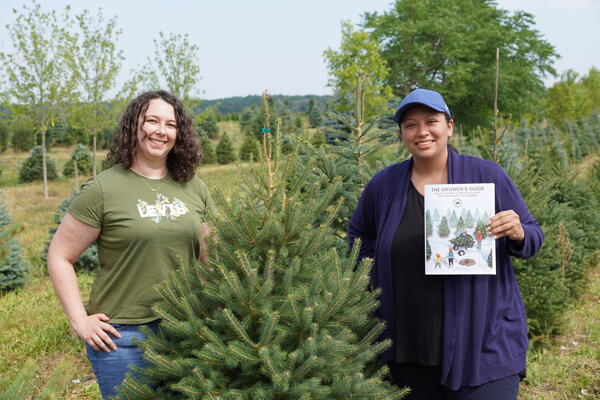
Current data on cycling behaviour neglects equity-deserving groups
Recognizing the diversity of cycling travel behaviour will improve participation and infrastructure investments

Recognizing the diversity of cycling travel behaviour will improve participation and infrastructure investments
By Media RelationsThe limitations of Statistics Canada's cycling data are having a real-world impact on women and marginalized people participating in cycling, a new study finds.
The long-form census bike-to-work data is currently the primary evidence transportation engineers and planners use to make a case for spending on cycling infrastructure. But a study by researchers from the University of Waterloo found that the census ignores recreational cycling and the trips of older adults, women, service workers, and people who are unstably housed or live with a disability. As a result, the value of cycling in our society is grossly underestimated. In addition, areas and groups lacking resources remain dismissed as a mere data collection gap and have limited access to cycling overall.
"Less than five per cent of the population is biking to work, but it's estimated that almost a quarter of the Canadian population is engaging in the activity," said Rebecca Mayers, postdoctoral candidate in the School of Planning. "If all cycling trips were taken seriously, including those that do not end at work, fall outside of regular business hours, take place through alleys or recreational trails instead of streets, decision-makers would have more information to inform and justify cycling plans."
The researchers indicate that precedent for broadening data collection has been set. In the Netherlands, where the cycling culture is strong and the infrastructure is well developed, data is collected on all bike trips regardless of destination or purpose. This data is incorporated into all policy decisions regarding cycling and enables planning staff to focus on groups and areas of the city that need infrastructure to make individuals feel safe and comfortable while cycling, such as children, older adults, newcomers and people with a disability. This decision likely explains why the cycling rate of all ages and abilities is higher in the Netherlands than in Canada.
As the current Canadian census is limited in its definition of cycling behaviour, the researchers call for a national household travel survey to be administered across Canada so that accurate data can drive decision-makers. They also urge that it is important for planners to expand their perspectives and reconsider leisure as a possible solution to increase participation, investment and representation in cycling.
"Investing in infrastructure for leisure cycling, like trails, has been shown to increase participation in utility cycling, like going the grocery store," said Mayers. "We need to challenge the limited belief that investments are only worthwhile if it's for the purpose of going to work."
The study, What Gets Counted Counts: Equity as a Lens to Rethink the Categorization of Cycling Trips, appears in the journal of Leisure Sciences.

(GettyImages/amriphoto)
Read more
Study reveals changes International Olympic and Paralympic Committees could implement to keep Games viable and safer for athletes

Read more
An ambitious research collaboration with Habitat for Humanity is reimagining home ownership across Waterloo Region and Canada

Read more
Waterloo researchers are helping to make a much-loved holiday tradition more sustainable all year round
The University of Waterloo acknowledges that much of our work takes place on the traditional territory of the Neutral, Anishinaabeg, and Haudenosaunee peoples. Our main campus is situated on the Haldimand Tract, the land granted to the Six Nations that includes six miles on each side of the Grand River. Our active work toward reconciliation takes place across our campuses through research, learning, teaching, and community building, and is co-ordinated within the Office of Indigenous Relations.